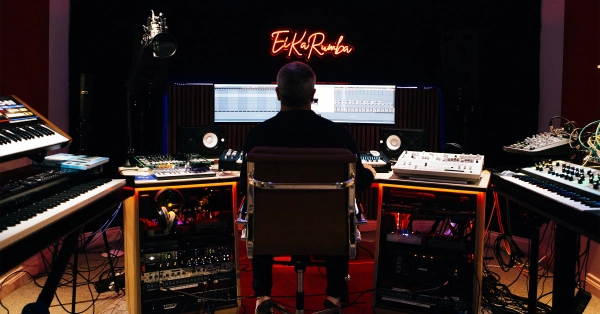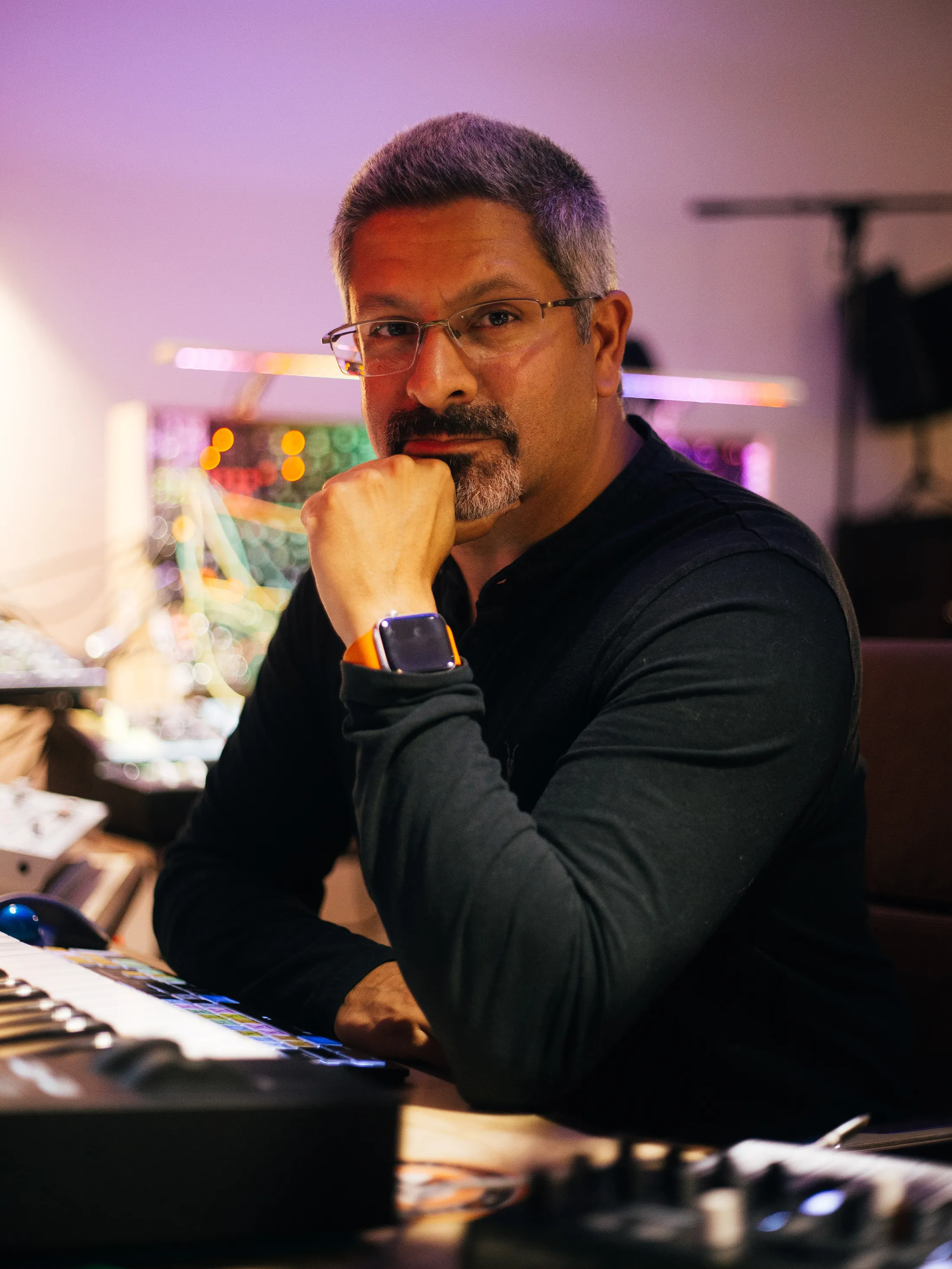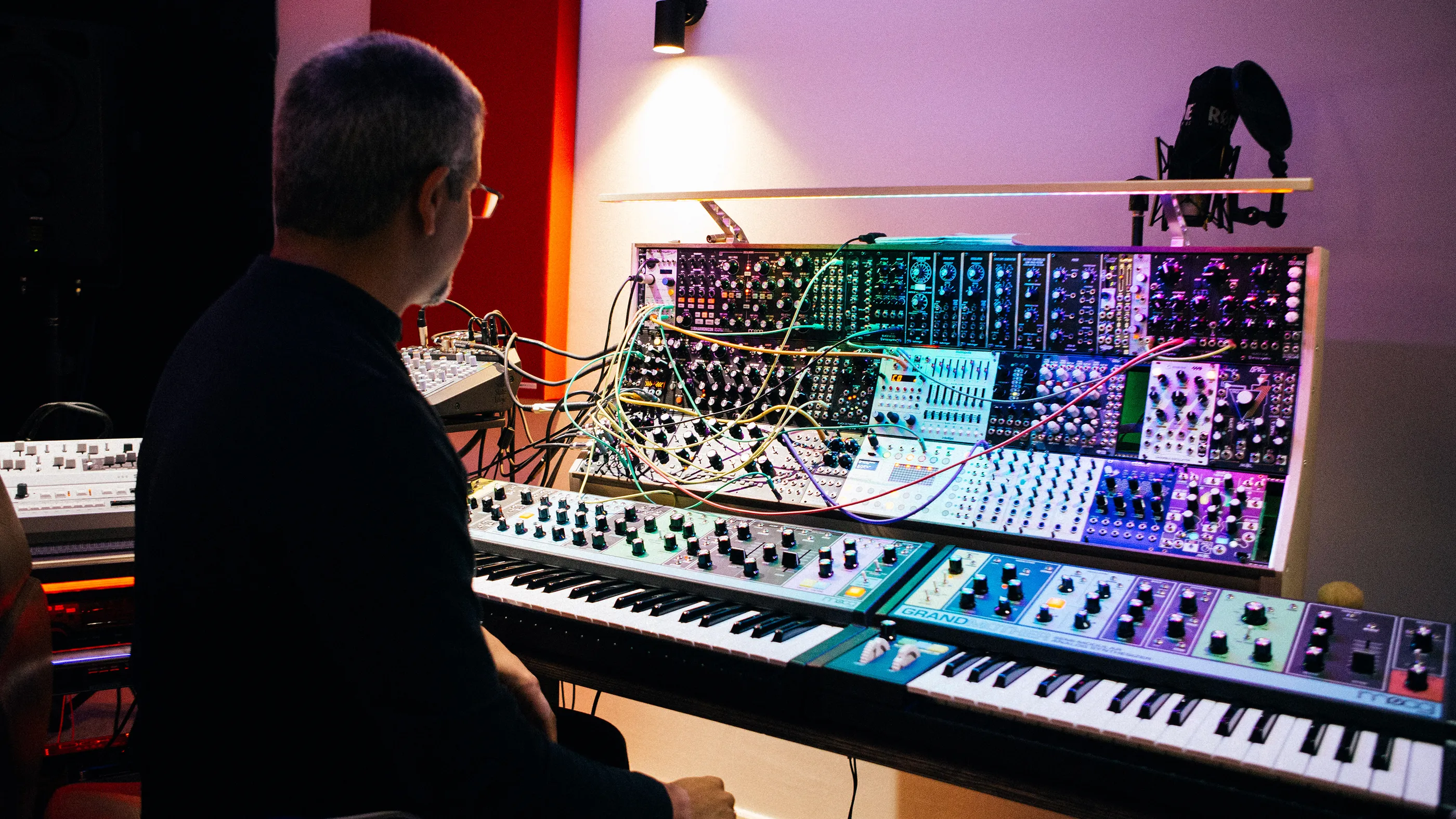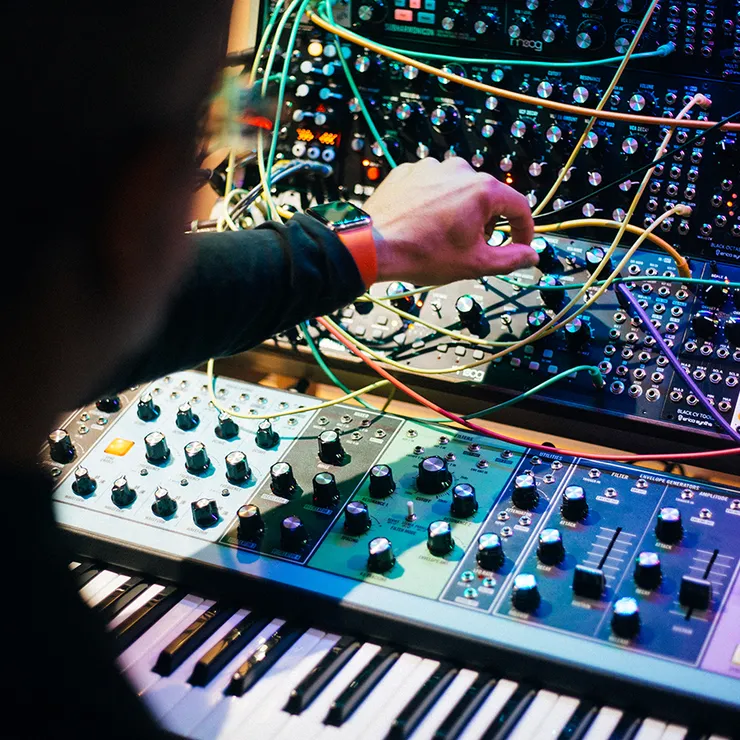Zahl Limbuwala
The connection between a successful career in the world of data centers and a burgeoning side hustle in the world of electronic music might not seem like a logical connection. In fact, you could be forgiven for assuming that a little music-making might be the result of the same pandemic-induced tinkering that launched many a side project.

For Zahl Limbuwala, COO of AtlasEdge, music has been more of a constant in his life than anything he’s now known for professionally, and his recent musical output is just the latest incarnation in a lifelong pursuit of creativity.
Zahl was born and raised in Hertfordshire, UK, after both of his parents independently left their Zoroastrian communities in Karachi, Pakistan, seeking new opportunities overseas. His father was destined for the US, but a brief stop in the UK led to him meeting Zahl‘s mother, and it was there that they decided to put down new roots.
Both of Zahl’s parents were keen for their son to integrate into UK life, but they also fostered an appreciation for the Parsi culture, allowing him to participate in both worlds.
With his creativity and inquisitiveness encouraged from a young age, Zahl recalls an interest in discovering what was inside what he calls “boxes of magic” such as the TV and radio. Armed with a soldering iron, he not only learned what was inside a radio, but actually built his own — at just nine years old. He also began learning the piano from a very young age and performed his first concert aged 12, and a life in music seemed to lay ahead of him — a far cry from the career of an engineer who now finds himself co-running a company that plays such a vital role in powering the connectivity we all take for granted.
But, aged 16, with an interest in circuit boards growing alongside his ongoing education in music, the roles of hobby and profession were switched, as Zahl began to study Computer Science. He started his first business in his last year of university, ran that for three years, fell into the IT world of London, and then moved to San Francisco, where he lived for three years (and would again, later in his 20s). Very quickly, his career progressed from building machines that handle repetitive manual labour tasks, to learning how all these integrated computers connected together, before moving into network engineering and then systems engineering. “Now I know about severs and systems, what about this big box they all fit in, called the data center?” he recalls. And therefore, in a way, Zahl has now returned to those very early roots in electrical engineering.

But music has remained a constant with Zahl, and when he started tinkering with hardware synthesizers, and in particular modular synthesizers, the two worlds at last collided in a meaningful way. “Because of my education with analogue electronics and digital electronics, I understood them,” he recalls. “I knew what an envelope generator was. I could build an amplifier. But I never practised any of that until much later in life, when I got into electronic music.”
Ask anyone who’s dabbled with modular synths, and you’ll soon understand that this is not so much a rabbit hole, but an inescapable wormhole: a hobbyist culture of next-level nerdery, driven by a passion for patch cables and love for LEDs. Not too dissimilar, then, from data centers, where a server rack might almost be interchangeable with a modular synth rig. And this intersection is where we find Zahl, sitting before a truly impressive array of equipment in his home studio, with his modular gear at the heart of it all.
Going live on Instagram was a great way to connect with people. I ended up doing a lot of collaborations with people who I’d never physically met. It really opened the world up — at a time when the world was closed
Working with a modular synth is an exercise in patience and creativity, because sounds need to be created by manually patching modules inputs and outputs together, and making music with such a system is more about letting unexpected results take hold than going in with any real sort of plan. Indeed, that approach can often lead to frustration, Zahl believes. “The fact that you can't recall stuff is very frustrating for people who come to modular from a traditional music background,” he says. “Of course, those people can be more successful in getting something musical out of a modular once they’ve got past the fact that they can’t approach it in the same way, compositionally. But there can be a lot of frustration: I want a bell sound and I can’t figure out how to get a bell sound!” Letting go of that, Zahl says, results in “so many more opportunities for happy accidents and spontaneity” than with a traditional instrument.

Spontaneity is also at the heart of the way that Zahl has shared his musical output with the wider world. Rather than focus on traditional releases, he’s much more interested in sharing moments with his listeners. “If you’re happy to just plug stuff in and fiddle, that's where the magic happens. Sometimes you sit there until 3am, and sometimes within the first three minutes I’m onto something and I’m ready to hit the record button — or maybe hit the livestream button on the iPad.” Broadcasting his modular synth experimentation to a live audience via Instagram has allowed him a way to share what’s excited him musically, “without me feeling like I need to capture this for forever, produce, round off the sharp edges, and distribute it.” Instead, it’s all about being present in the moment, and letting others in to share that experience. “At the end of the night,” Zahl says, “maybe it was only two, or five, or ten people who enjoyed it, but it was a moment in time.”
This new way of making music was actually thanks to the pandemic, however. “I was on a bit of a career break at that time,” Zahl recalls. “I was employed, but between roles, so wasn’t hugely busy. Before that, I was meeting customers, going to conferences, doing panels — and obviously all of that disappeared. So, during the early part of the pandemic, when we were all locked down, it gave me the time to really experiment with music.” He explains that although he loves meeting people in real life, he also enjoyed taking a break from it; to be able to immerse himself entirely in music. “Going live on Instagram was a great way to connect with people,” he says. “I ended up doing a lot of collaborations with people who I’d never physically met. It really opened the world up — at a time when the world was closed.”

Now, with normality somewhat restored, Zahl balances the demands of his job with music-making by making an early start on work. “I get up at 5:30 and I’m into work,” he explains, “and then the evenings tend to be free to go into the studio and spend time with the other technology.”
For Zahl, accepting that music could remain his life’s passion, without requiring it to earn him a living, has been a liberating experience that’s lead to him making and occasionally releasing music without the need to fulfil any commercial requirements. In a world where success is all too often judged by follower count and number of likes, it’s refreshing to find someone creating purely for the joy of it. No masterplan. No social media strategy. Just… music. “I make zero effort to promote my music,” he says. “I have precious little time, so I focus it on enjoying the music-making, rather than trying to build a fanbase.”
1 + 1 = 3 has always made a lot of sense to me. If you can find the right people to work together, the whole is greater than the sum of its parts. That applies in my music as much as in my professional career
Zahl’s passion, of course, is not limited to music. He’s in the desirable position of working in a role he’s deeply passionate about, and cites his motivation as “the opportunity to be involved in building the next generation of capability that evolves the internet”. Discussing his work for AtlasEdge, he explains that although consumers see the internet evolving constantly, “the infrastructure behind all of that has remained pretty much the same for at least the last 30 years — and it’s creaking.” In Zahl’s opinion, there’s too much workaround that needs to happen to deliver what consumers experience day-to-day, and the solution to that is what AtlasEdge is pioneering, developing the assets that’ll form the next backbone of the internet by enabling data centers to appear on a much more granular basis. “It’s the creation of an ecosystem,” Zahl explains. “The data center is the physicality of the internet, but it takes more than the physical asset in order for that to work. It takes an ecosystem of providers, people who bring networks in, those who exchange network traffic, where all of that can happen.”
So perhaps all of this is related — the exchange of ideas through music collaborations, and the exchange of ideas through a literal network. “1 + 1 = 3 has always made a lot of sense to me,” Zahl says. “If you can find the right people to work together, the whole is greater than the sum of its parts. That applies in my music as much as in my professional career.”
Asked if he has any regrets about either his career or indeed his music, Zahl says that he has just one regret in life: that he never found out what happened to his EDP Wasp synthesizer. “When I was about the age I made the decision to go down the engineering path,” he explains, “I was scavenging out of skips — literally — from an electronic company that had gone bust. They told me to help myself, as it was all going into a landfill. So I grabbed a bunch of things — mostly electronic components, transistors, and unprocessed PCB boards, and I got so much stuff from that skip that I filled the back of my parents’ car!” Amongst these precious finds was the EDP WASP synth — a visually stunning, black-and-yellow machine that was loved by many, but difficult to play due to its non-moving, touch-sensitive keys. “It was the first synthesizer I ever saw,” Zahl says. “I picked it up, took it home, and found that it didn’t work. But because of my soldering iron skills, I fixed it and then spent hours making incredibly realistic helicopter noises with it. But I’ve no idea what happened to it — whether I sold it or misplaced it, I just don’t know. I’ve asked my parents: ‘are you sure it’s not in your loft?’ Because if that synth is there, I really need it!”